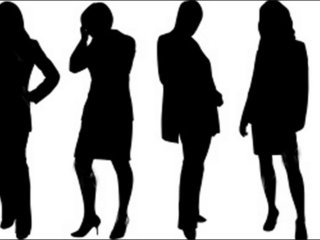Digital health funding declines for the third year in a row
AI-enabled digital health startups raised $3.7B, 37% of total funding for the sector
Read more...
Diversity in tech is the topic du jour—that and gentrification in San Francisco. Which one do you want to talk about today? Diversity in tech? What say you, Marc Andreessen?
In an interview with New York Magazine, Andreessen took on the topic of diversity in Silicon Valley with some verve. While journalist Kevin Roose pointed out that at Twitter, 90% of employees are male and more than 50% are white, Andreessen argued that the problem is-- wait for it…a lack of talent.
“Our companies are desperate for talent. Desperate. Our companies are dying for talent. They’re like lying on the beach gasping because they can’t get enough talented people in for these jobs,” said Andreessen.
The problem, says Andreessen, is inequality in education and a lack of access to the right connections. Fair enough. Except for the fact that a recent analysis conducted by USA Today found that top universities are graduating black and Hispanic computer science and computer engineering students at twice the rate that technology companies are hiring them. Last year, 4.5% of computer science and engineering graduates from top universities were black and 6.5% were Hispanic. But on average, just 2% of employees at Silicon Valley tech companies (specifically, the seven companies that have released diversity stats) are black and 3% are Hispanic.
Andreessen argues that the argument that Silicon Valley companies are “deliberately, systematically discriminatory” is wrong—and to a certain degree, he’s right. Startups probably aren’t explicitly saying, “no chicks, and no brown people.” But that’s where the “culture” issue comes into play.
In a talk he gave to Stanford students on the benefits of a lack of diversity (in early teams), PayPal’s Max Levchin relayed a story about rejecting a candidate because he said he liked to “play hoops.”
“That guy clearly wouldn’t have fit in. He’d have had to explain to the team why he was going to go play hoops on a Thursday night. And no one would have understood him,” said Levchin.
No, that’s not overtly discriminatory in the hostile sense, but it is discriminatory in the sense that such a hiring call would be more likely to affect black applicants than white applicants.
Where Marc Andreessen really shoots himself in the foot on this one is where he explains that Silicon Valley tech companies are actually more diverse than we give them credit for. Why? Because they have a lot of different types of white and Asian people.
“When you actually go in these companies, what you find is it’s American people, but it’s also Russians, and Eastern Europeans, and French, and German, and British. And then there are the Chinese, Japanese, Koreans, Thais, Indonesians, and Vietnamese.”
Go home, Marc. You're drunk.
The fact of the matter is that women and black people with Ph.D.s in STEM subjects are more likely to end up with jobs outside of the field than men and those of other races. Only 16% of white men with advanced STEM degrees end up with jobs outside the field.
But Marc Andreessen is a firm believer in the meritocracy. In reference to Sheryl Sandberg’s book Lean In, Andreessen summed things up thusly: “I think the big message of the book is people can take control of their own destiny to a greater extent than they believe.”
Image source: businessinsider.com
AI-enabled digital health startups raised $3.7B, 37% of total funding for the sector
Read more...OXcan combines proteomics and artificial intelligence for early detection
Read more...Nearly $265B in claims are denied every year because of the way they're coded
Read more...
